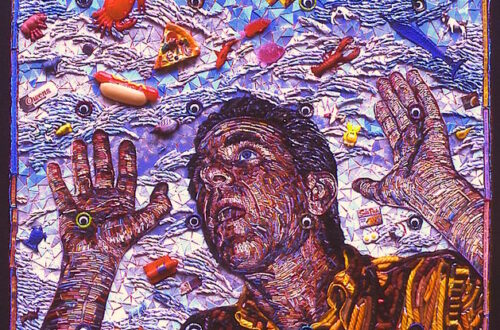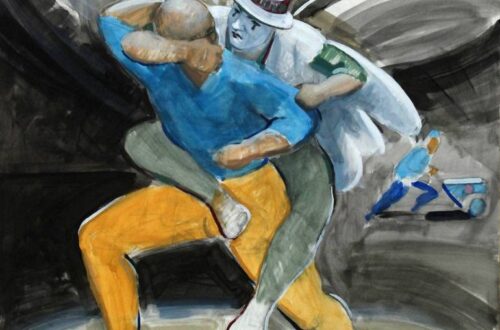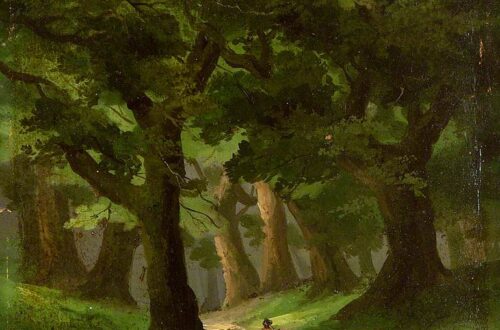-
Judges 17-18
I believe it was Winston Churchill after the decisive victory in North Africa against Rommel who said, “Now this is not the end. It is not even the beginning of the end. But it is, perhaps, the end of the beginning.” In the same way this passage points to the end of the beginning – the exodus from Egypt, the giving of the Law, surviving the wilderness and coming into Canaan. It is a hinge point in the story of Israel because while it is the end of the beginning it is also the beginning of the end – the eventual annihilation of the Northern tribes and the exile of…
-
Man in the Mirror
One of my professors in seminary was Dr. James Fowler, the author of Stages of Faith: The Psychology of Human Development and the Quest for Meaning. I thought of his teachings again this week while remembering a trip with donors to visit ministries in the Dominican Republic. I realized that in much the same way we mature in faith, we tend to grow as givers. We all start at the beginning, and each stage is important and necessary. In fact, we won’t develop fully if we skip a stage. I’ve learned over the years that giving is more of a team sport than an individual pursuit, so I wanted to offer my perspective…
-
Fixing the World
The earliest foundations in America were established by men who had made fortunes by recognizing and capitalizing on social demographic industrial and financial changes in our country. Most were self-made and still young when accomplishing their discoveries or leveraging the new technology into enormous wealth and economic power. They were convinced they could use the same disciplines and mindsets to dispense what they had accumulated. Calling it “scientific philanthropy,” they focused their energies on solutions, systems and large-scale issues. In “Charity Philanthropy and Civility in American History,” Judith Sealander writes, “They studied society closely, understood the dangers posed by the industrial revolution that had created their fortunes and worried publicly about the dangers. They and…
-
A Consecrated Fool
Growing up in church as a scrawny kid I was captured by stories of David slaying Goliath, Gideon defeating the Midianites, and especially Samson taking out 1,000 Philistines practically bare handed. While I loved the daring of those figures, I was also taught to be careful about the temptations of great champions: David’s moral failure and desperate attempts to cover it up, Gideon’s late-in-life slip into creating an idol and snare for his family, and the far more dramatic and colorful life of Samson and his sensational self-destruction. All of these stories served as lessons to us that great strength demands responsibility, and there is danger of misusing those gifts. The…
-
Walking Around Money
Walking Around Money Speaking to a group of hundreds of conservative Christian faith leaders who met with him last June, Trump made his opposition to the Johnson Amendment a key point of his well-received speech: “I think maybe that will be my greatest contribution to Christianity — and other religions — is to allow you, when you talk religious liberty, to go and speak openly, and if you like somebody or want somebody to represent you, you should have the right to do it,” he said. “You don’t have any religious freedom, if you think about it.” By now, most of you know a little about the history of the Johnson Amendment. It was proposed…
-
Judges 6: 1-8:22
1. The leadership of Moses and Joshua. This is followed by the relative independence of the twelve tribes. They are expected to govern themselves without a single leader – but they drift away from the law and become incapable of resisting the internal and external enemies. The Lord sends them judges to fight for them and during the life of each judge there is peace. When the judge dies, the people revert to their old ways. As chapter six opens, the people have been unfaithful after forty years of peace. Typically, the peace lasts for a generation or two and then begins to unravel toward the end. The idols come…
-
Leaving on a Jet Plane
As we left church on Sunday we sang the chorus: Because He lives, I can face tomorrow, Because He lives, all fear is gone; Because I know He holds the future, And life is worth the living, Just because He lives! Walking out I started thinking about several articles I read this week on the growing interest in survivalism and an apocalyptic mood permeating so much of our country. Probably the most interesting is in a recent The New Yorker article, “Doomsday Prep For The Super-Rich” by Evan Osnos. For what might have been quirky and even humorous a few years ago, Osnos makes a chilling case that many of the Silicon Valley elite are preparing for…
-
Judges 3:1-6: Enemies In The Land
“So then, the Lord left some nations in the land to test the Israelites who had not been through the wars in Canaan. He did this only in order to teach each generation of Israelites about war, especially those who had never been in battle before. Those left in the land were the five Philistine cities, all the Canaanites, the Sidonians, and the Hivites who lived in the Lebanon Mountains from Mount Baal Hermon as far as Hamath Pass. They were to be a test for Israel, to find out whether or not the Israelites would obey the commands that the Lord had given their ancestors through Moses. And so…
-
Can I Get Back to You?
Most often as a favor to an author or publisher, I have likely read as many books about fund-raising as any other topic. Some are classics like The Seven Faces of Philanthropy by Russ Prince or Henri Nouwen’s A Spirituality of Fundraising, but most, frankly, are either focused on how to minister to major donors assuming they are sad, dysfunctional and needy people or how to quickly discern their passions to align your organization with their interests. Even though I consider Peter Harris a friend, I put aside the book he wrote with Rod Wilson, Keeping Faith in Fundraising, I received last month. But then Rod commented on one of my recent blogs, asking if I had read their book. I found it in the stack and started reading quickly so I could give him a…
-
Judges 1:1-2:19
1. Succession plan. Moses was the liberator. Joshua was the military leader for conquering the land. There was never any intention to have a leader after that. Everything was to be organized by tribes and local government. No President. No King. No standing national armies. It would be like our having States but no national government. There would be no United States – just States. Some tribes do better than others at driving out the Canaanites. Some have to cooperate with each other and some do it on their own. Some few are unsuccessful and live with the consequences. There is no attempt to form a national effort to drive…



